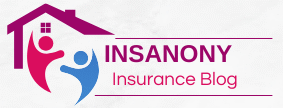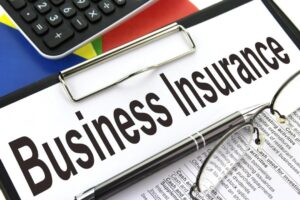No matter your experience level or financial industry background, understanding key insurance concepts is an integral component of effective collaboration between your independent agent and yourself as a true business partnership.
Commercial policies are complex financial contracts designed to combine property and liability risks into one package at an affordable cost, similar to homeowners insurance policies.
1. General Liability
Assuring your business against lawsuits and costly damages is of the utmost importance; even small claims can have devastating financial repercussions without coverage. General liability insurance provides cover against legal fees and settlement costs associated with bodily injuries sustained from third parties – for instance an injured customer’s medical bills or damage done to client offices.
A typical policy typically features per-occurrence and aggregate limit amounts, making it essential to shop around for coverage that best meets your business. Some policies also offer product liability protection to cover damages should any of your products such as office furniture or cleaning supplies cause harm to people or their properties.
Professional liability is another optional coverage for small business insurance that protects you against claims that your services caused financial loss to customers or clients. Often required by landlords and clients, this type of policy is also known as errors and omissions (E&O) insurance and should be purchased either in conjunction with or as a standalone policy. For greater peace of mind and cost efficiency, consider purchasing a business owners policy (BOP), which bundles together various property and liability coverages into one plan to help simplify and save you time when purchasing separate policies separately.
2. Business Owner’s Policy (BOP)
A business owner’s policy (BOP) provides two essential insurance types -general liability and commercial property–in one convenient package at a discounted cost, making it an attractive choice for small businesses and startups.
General liability protection provided by a BOP helps cover lawsuits resulting from third-party injuries or property damage caused by your company, as well as costs associated with repairing or replacing customer property damaged by it. Furthermore, it offers property coverage that protects both buildings owned by your business and personal equipment owned by individuals within it from natural disasters, floods, earthquakes and hail. This coverage generally protects against named perils such as fire, wind, theft theft explosion vandalism with additional open perils such as natural disasters flood earthquakes earthquakes hail etc.
Insurance providers determine eligibility for a BOP policy depending on a business’s location, size of space, class of industry and revenue. Most offices or storefronts that do not employ many people nor carry large equipment typically qualify.
Some companies may need additional coverage for risks like data breaches or liquor liability, which can be added onto a BOP policy. The insurer can also include optional coverages like crime insurance, spoilage of merchandise protection and computer equipment protection as well as providing a fidelity bond guarantee.
3. Commercial Auto
Whether your business operates cars, trucks, vans, trailers or any other vehicle designed for public roadway use, commercial auto insurance should be part of its portfolio. This policy offers liability, collision and comprehensive protection and also covers employees driving their personal vehicles while on company business – an endorsement can easily be added onto existing policies to provide this cover.
Hired and non-owned auto coverage expands your liability limits when employees use their own cars on company business, particularly delivery drivers or contractors who make deliveries using their personal cars. It’s especially essential if your delivery service makes deliveries using personal cars.
Commercial auto insurance can provide your business with peace of mind by covering unexpected repairs. In fact, it could even help cover rental car expenses while its insured vehicle is being repaired or replaced – discuss available policies with your independent agent to find one best suited to you and which physical damage coverages will best meet your needs.
4. Business Interruption
Business interruption insurance helps protect companies against financial losses caused by an interruption to their operations, providing compensation for income lost and extra expenses incurred while their operations were shut down – however it doesn’t cover property damage (covered under commercial property insurance).
The policy typically provides two forms of coverage: earned profits and extra expense insurance. Earned profits represent what would have been made had your business been operating; they will be compensated accordingly by your insurer. Extra expense coverage provides costs related to shortening time when fully or partially shutting down, and ensures it can resume operations as quickly as possible after physical loss or destruction of property.
Both policies utilize past financial records as the basis for coverage, while both may have specific limits imposed by them. Furthermore, many policies include civil authority coverage which covers losses associated with government-mandated shutdowns or restrictions (e.g. mandatory evacuation or curfew).
However, this coverage requires physical damage to insured property from an insured peril as well. Therefore, it may not provide sufficient coverage against business interruption losses caused by the COVID-19 pandemic. If your current commercial policy doesn’t adequately protect your firm against COVID-19 pandemic risks, consulting an insurance broker could help find suitable coverage options to fit.




